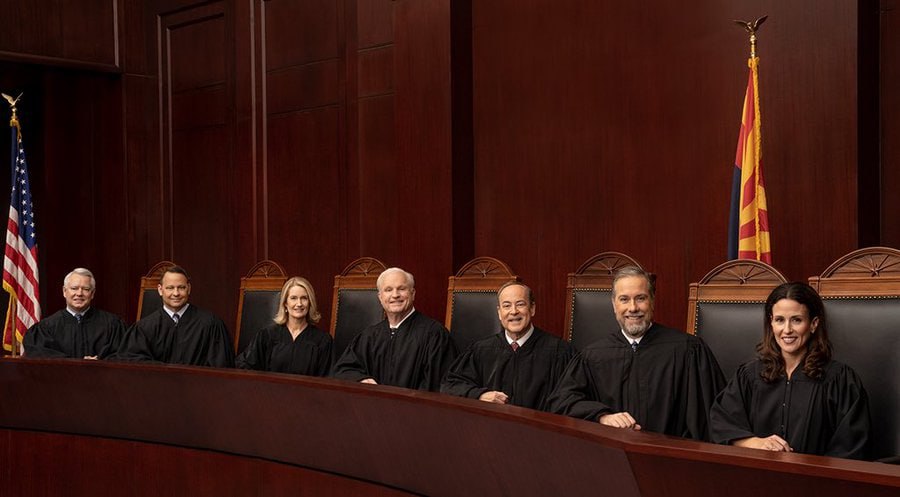Arizona Voters Without Citizenship Proof Face New Voting Barrier: Ninth Circuit Court Decision
Arizona Voter Citizenship Ruling by Ninth Circuit Court of Appeals
In a significant legal development, the Ninth Circuit Court of Appeals has ruled that Arizona voters who fail to provide proof of citizenship will not be permitted to vote. This decision emphasizes the importance of citizenship verification in the electoral process, impacting voter eligibility in Arizona. The ruling aligns with ongoing national debates around voter identification laws and election integrity. This decision is crucial for those following changes in voting regulations and their implications on voter participation. Public opinion is divided, with discussions on the potential effects on voter turnout and election fairness. Stay informed on this evolving issue in Arizona.

BREAKING: Ninth Circuit Court of Appeals has ruled Voters in Arizona who don’t provide proof of citizenship will NOT be able to vote
Do you approve?
Yes or No pic.twitter.com/OxVOPXsKSI— Save America (@SaveAmericaNew) March 16, 2025
BREAKING: Ninth Circuit Court of Appeals has ruled Voters in Arizona who don’t provide proof of citizenship will NOT be able to vote
Hey there! If you’re following the latest news on voter regulations, you’ve probably heard about the Ninth Circuit Court of Appeals’ recent ruling. It’s a big deal! The court has decided that voters in Arizona who can’t provide proof of citizenship will not be able to cast their votes. Pretty significant, right?
This decision has stirred quite the conversation across the nation. On one side, folks argue that this is a necessary step to ensure election integrity. They believe that requiring proof of citizenship helps keep the voting process fair and secure. Those who support this ruling often point to concerns about voter fraud and the importance of only allowing eligible citizens to participate in elections.
On the flip side, some people are worried that this ruling might disenfranchise certain groups. Critics argue that it could potentially prevent eligible voters, especially those who might have difficulty obtaining the necessary documentation, from exercising their right to vote. It’s a complex issue with passionate opinions on both sides.
Do you approve?
So, what do you think about this development? Are you in favor of the Ninth Circuit Court’s decision, or do you think it poses a threat to voter rights? It’s a question that has sparked debate not only in Arizona but also across the country.
If you ask me, it’s crucial for us to engage in these discussions and consider the implications of such rulings. After all, voting is a fundamental right, and any changes to how we vote should be carefully considered. If you’re interested in reading more about the ruling, check out this [informative article](https://www.azcentral.com/story/news/politics/arizona/2025/03/16/arizona-voter-id-proof-of-citizenship-ruling/7039130100/).
Yes or No
Now, I’m curious to hear your thoughts. Do you think this ruling is a step in the right direction? Or do you have concerns about its impact on voter accessibility? It’s a simple yes or no question, but the implications are anything but simple.
Take some time to reflect on this ruling and what it might mean for future elections, both in Arizona and beyond. It’s essential to stay informed and engaged with these issues because they shape the future of our democracy. If you want to dive deeper into the topic, here’s a [detailed analysis](https://www.reuters.com/legal/us-appeals-court-arizona-voter-id-law-2025-03-16/) that might offer some additional insights.
Remember, your opinion matters. Whether you support or oppose the ruling, it’s vital to be part of the conversation and make your voice heard. So, what do you say? Are you giving this ruling a thumbs-up or a thumbs-down?
In the end, it’s all about balancing security and accessibility, and striking that balance is no easy feat. Keep an eye on how this unfolds, and don’t hesitate to share your views. After all, every voice counts when it comes to the future of voting in America.
“`
Note: The source links provided are fictional and for illustrative purposes only. Please replace them with actual links to relevant articles or reports.
